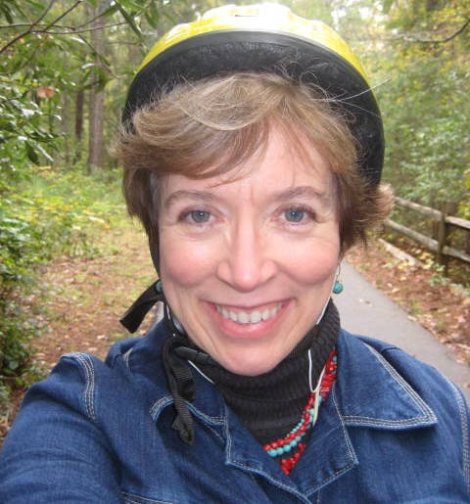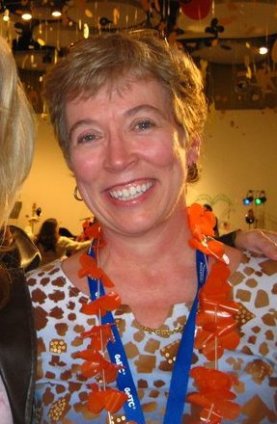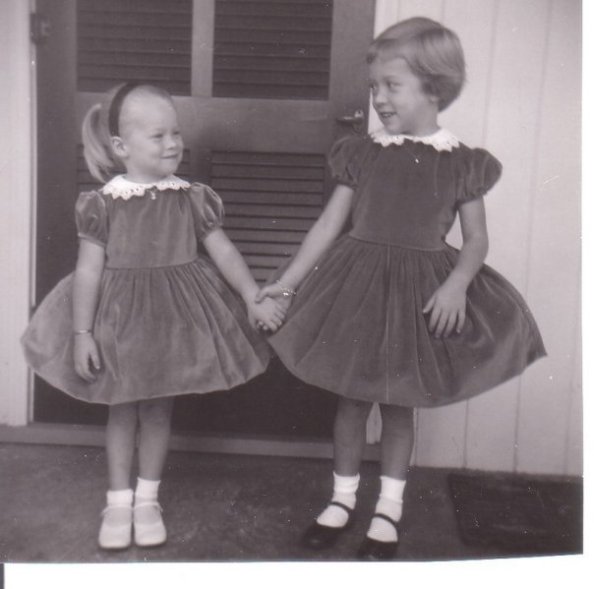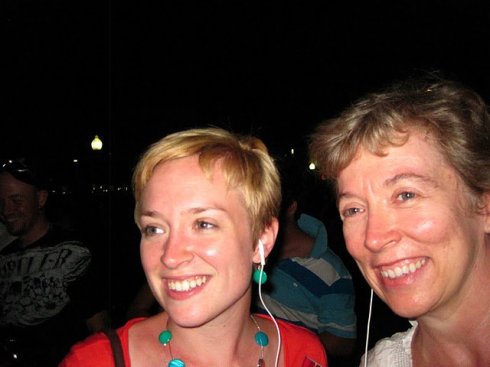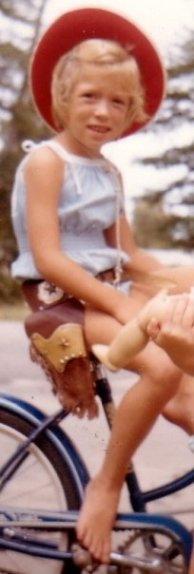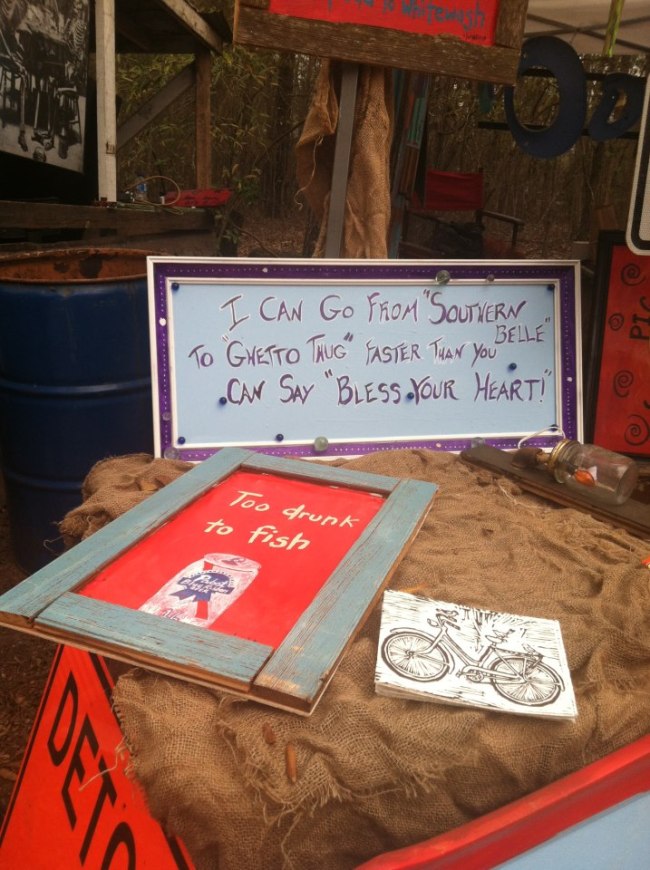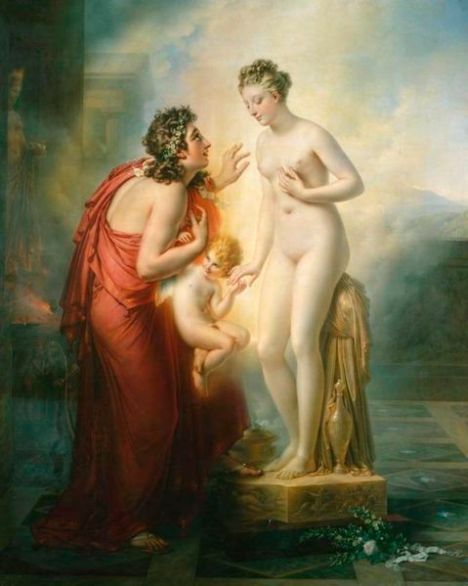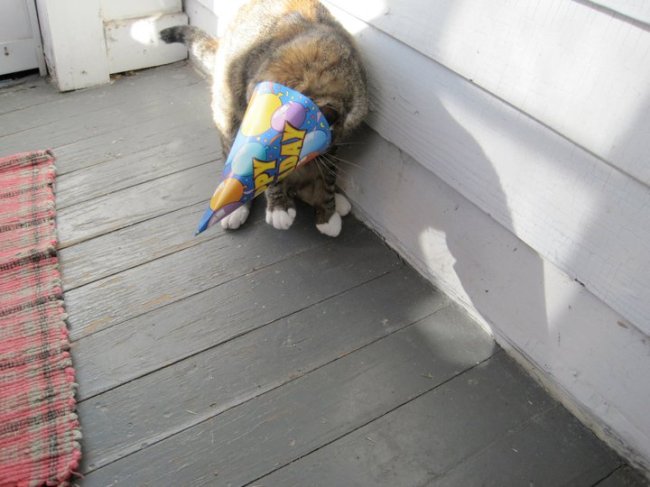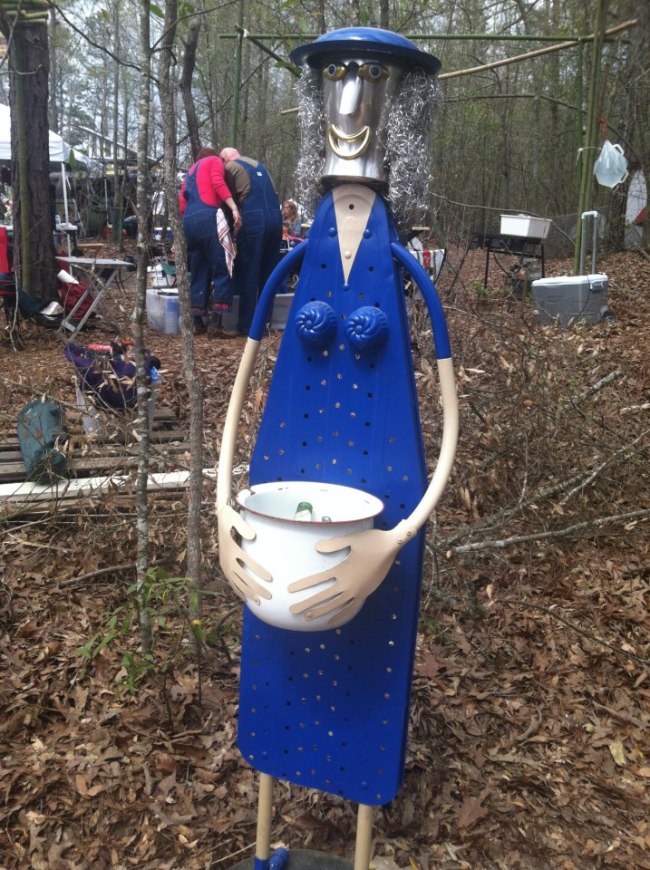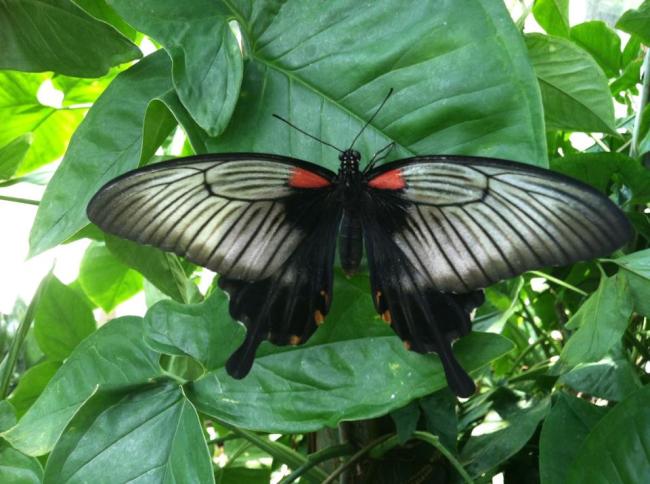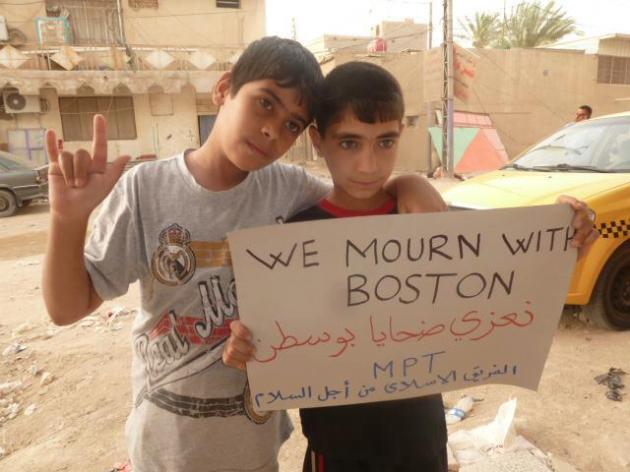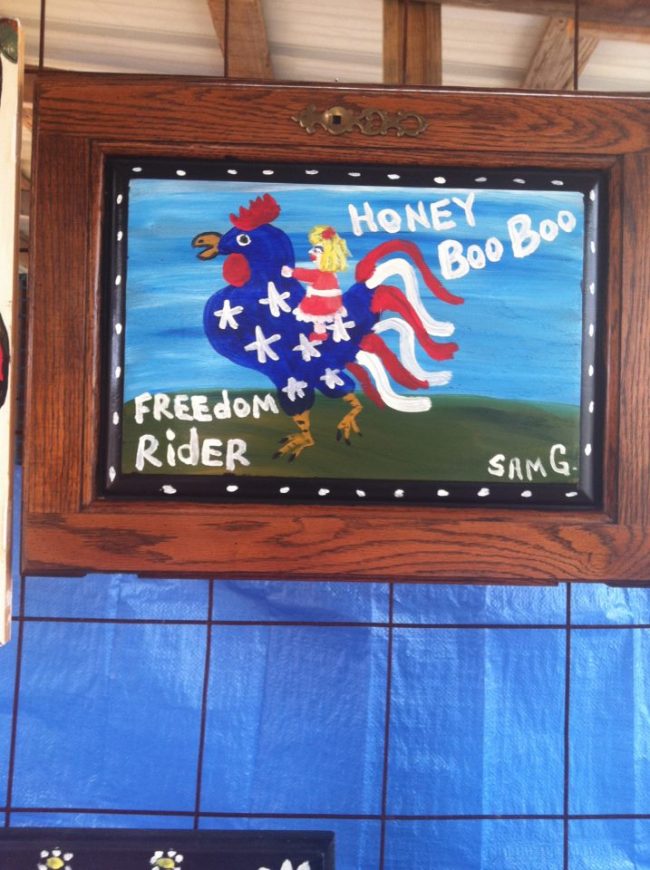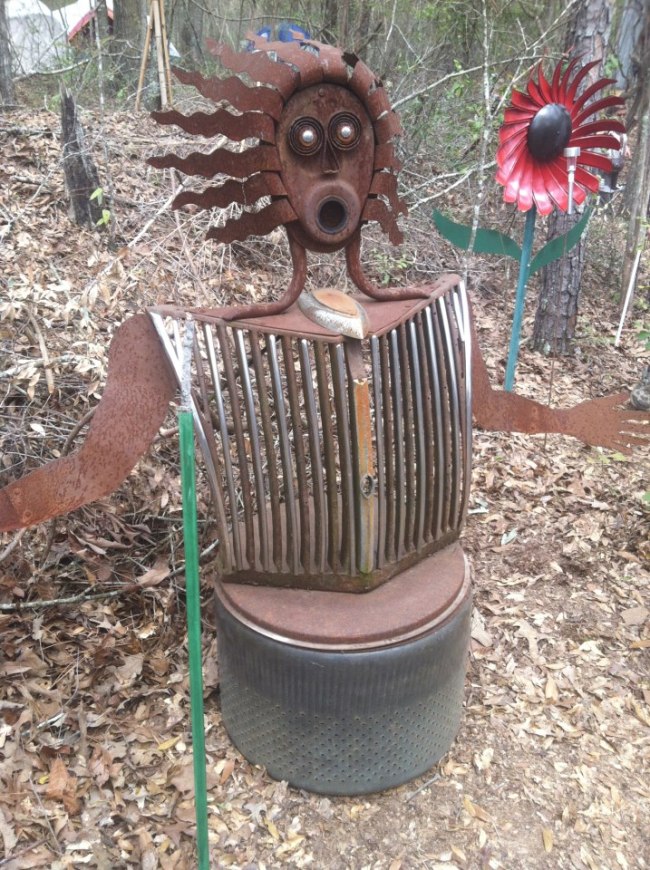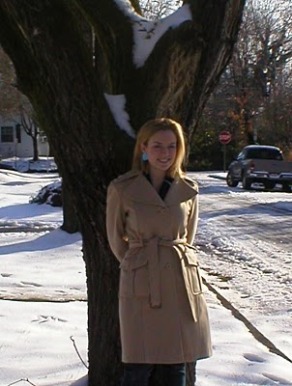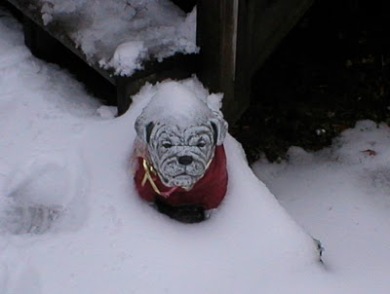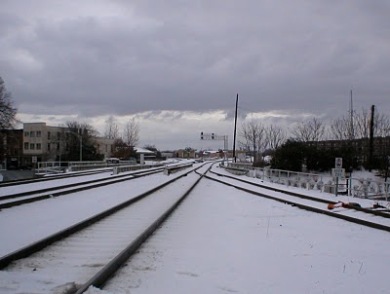My mom on her bike. A Saturday with my mom usually involves a 20 mile bike ride, a weight lifting session at the Y, and a yoga class. At some point, there is also a Dinglewood hot dog mixed in there, too.
If you haven’t had the privilege of meeting the marvelous Miz Em, I’m sorry. My mother is probably the coolest person I know, and the best mom. She’s been to multiple performances of almost every play I’ve ever done, has suffered through some pretty terrible violin recitals and has cheered me on through some great voice recitals, has supported me in whatever I wanted to do, and has once made me a Rainbow Brite costume that involved 37 pieces and a yarn wig and that was totally BA. It is hard for me to describe my mom, so I’m going to do it by giving you a list of the ten greatest things she has ever said:
1. “Have as maaaaany as you want.” – Said when my cousins asked her how many donuts we could have.
2. “If you all do not sit down and be quiet, then I am going to boxilate you.” – Said when my cousins and brother and I, probably after a box of donuts, were bouncing around the mini-van screaming and hitting each other. My mother had no other object at her disposal but a Kleenex box, which she brandished high above her head as she said this.”
3. “It looks like the rats ate them.” Said when she opened up a box of paper mache bracelets we’d made in girl scouts and left in city’s rat infested girl scout huts. My mother, our troupe leader, also taught us how to make fires, how to survive the bathrooms at Camp Concharty, and that ears were “weird things on everyone – let’s just admit it. All our ears are weird!” (said to a girl who was being teased about her ears, I’d forgotten this, but this stuck with the girl as being a great comfort).
4. “Honey, smile at him. Men like it when you smile.” Said to me at a funeral home, when she was trying to set me up with someone. My mom is always on the lookout for a good looking young man for me, no matter the occasion. Her latest find: the golfer, Adam Scott. “He’s good looking and he’s just come into a lot of money!”
5. “There are worse things than ending up alone.” Said when I bemoaned what I sometimes see to be my fate as an old maid cat lady. Though she does in jest try to set me up with people, she knows that deep down, the most important thing is that I’m happy with myself.
6. “Oh lord, we’re going to be like Grey Gardens.” Said to me when I told my mom that I was going to write a play about us and that she would be in it. I told her not to worry, that we weren’t feeding raccoons in the attic just yet. 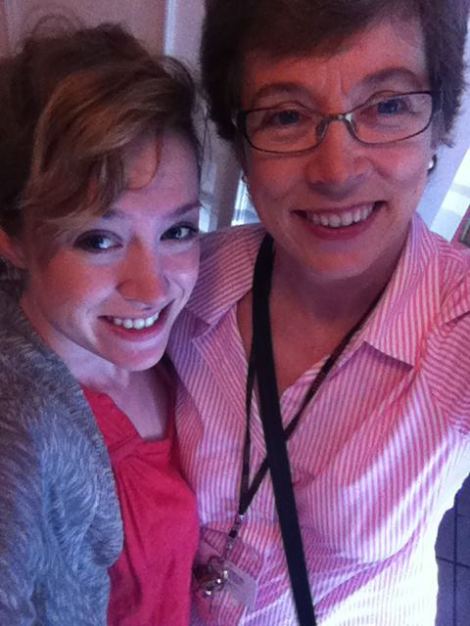
7. “If God was so opposed to gay marriage, then why isn’t in the the dang ten commandments?” Exclaimed at some pundit on TV.
8. “Three dozen bagels, sir.” Said to a customs officers when asked if we were bringing back any food from Canada.
9. “Be optimistic…” Sung by my mother in a department store, in front of one of the popular kids in my class and his mother, when I was in middle school. At the time, I wanted to bury myself in one of the clothing racks, and now, I just appreciate it as my mother’s sense of humor.
10. “She’s going to do whatever she wants to do.” Said to a woman who asked – rather rudely – what in the world I was ever going to do with a BA in English.
